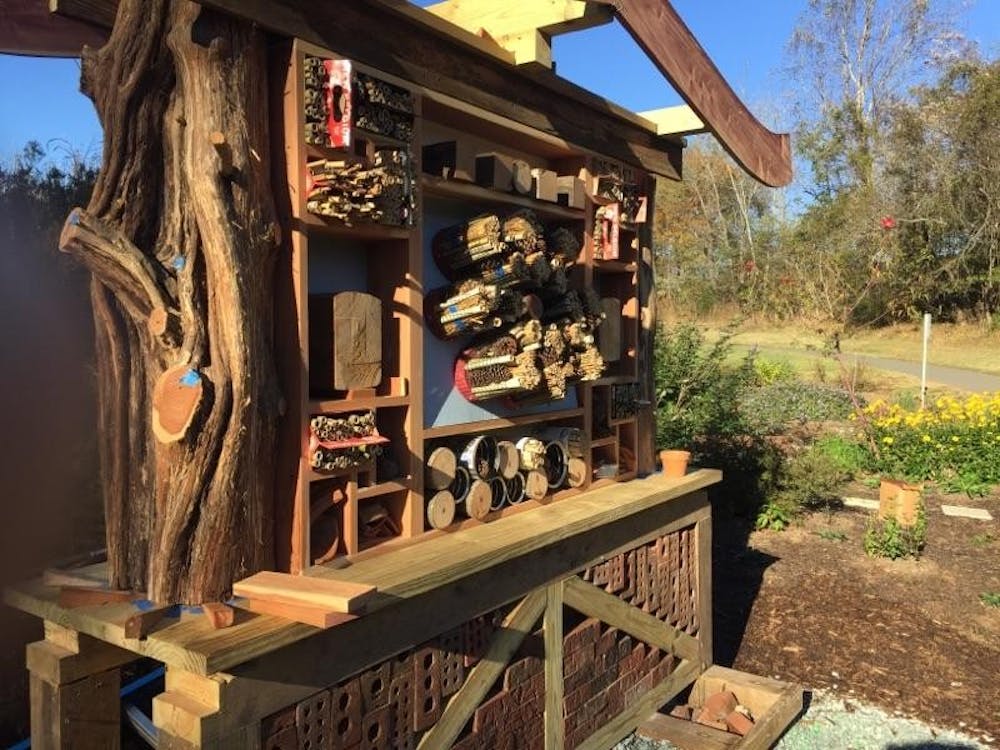As a Bee City, Hillsborough continues to maintain it's Bee Hotel while cultivating a local pollinator garden in an effort to create an environment attractive to local pollinators.
Stephanie Trueblood, the Town of Hillsborough’s public space manager, works with local volunteers and other groups to help keep it's title.
“We became the 35th Bee City in the nation in 2017, and in order for us to keep that status, we have to undertake a certain amount of projects and education and outreach opportunities,” she said.
The Bee Hotel is the largest project the town has done so far, and was installed this past November in Gold Park — but the hotel is just one part of Hillsborough’s plans to keep it's title as a Bee City.
“We’re looking at providing additional pollinator habitats — which is something we try to do every year — to widen the available habitat for local pollinators,” Trueblood said.
Local pollinators refers to any animal that is native to the region and helps spread pollen around the ecosystem. Bees are local pollinators, and in North Carolina there are over 500 different species of native bees, 90 of which are present in Hillsborough.
Sarah Meadows, a member of the Hillsborough garden club, said the Bee City title is not just for people who keep bees — like honey bees — but is also for native, wild bees. Wild bees typically don’t live in hives or produce honey but are vital parts of the ecosystem.
“People don’t know that honey bees are introduced from Europe and not native,” Meadows said.
Meadows helped formulate the idea for Bee City and encouraged Hillsborough to apply for the title. She, along with the rest of the Gardening Club will be working to raise awareness for these local pollinators.




